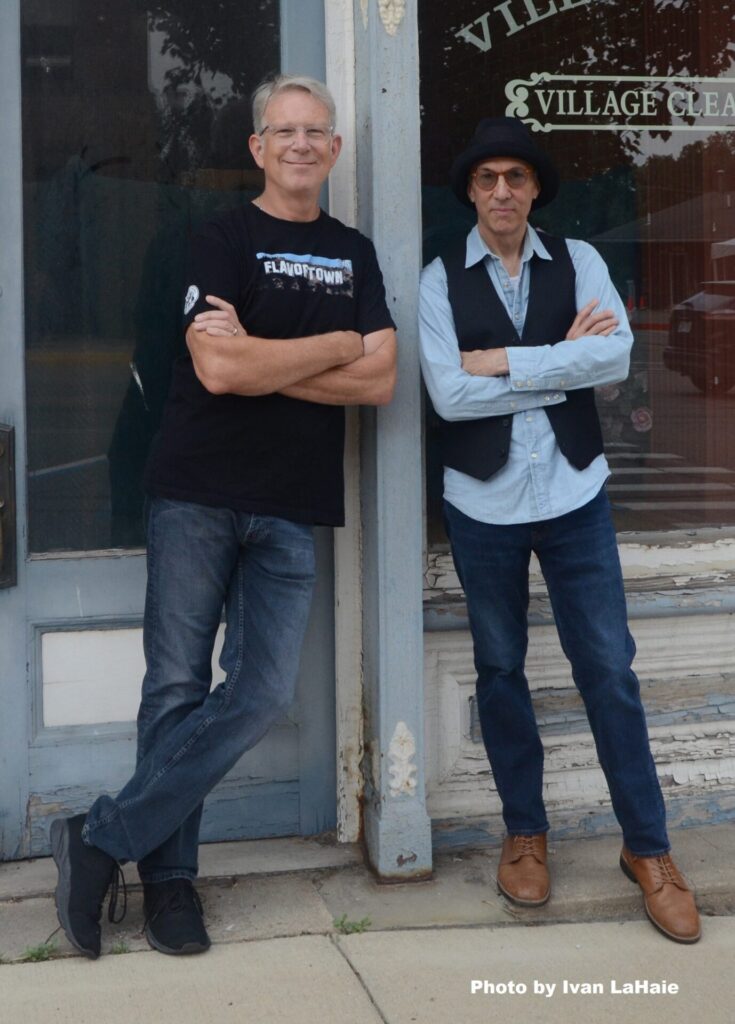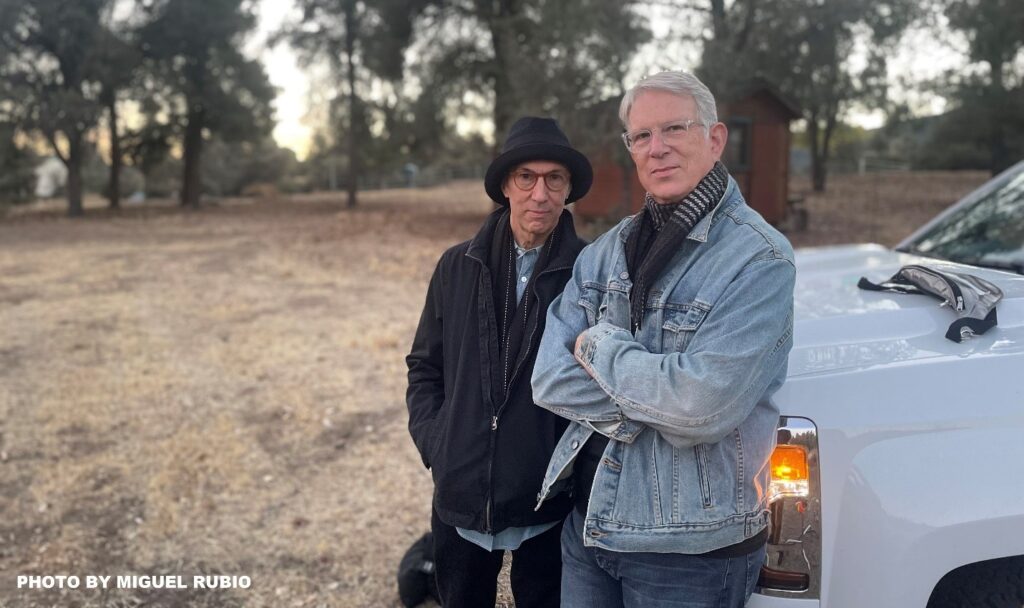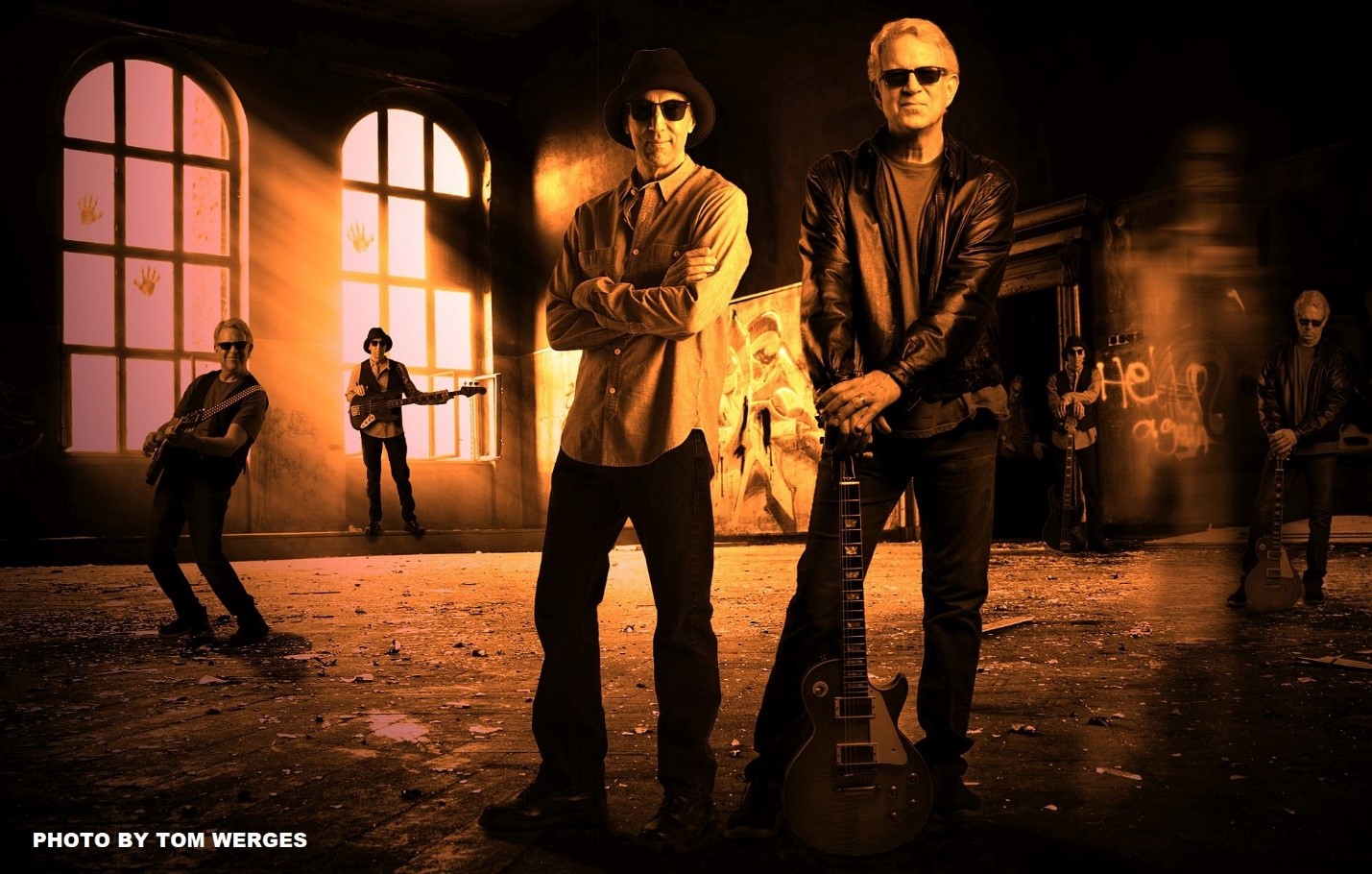The American rock band Foundry Town Survivors have released a new song that pays tribute to America’s small towns, specifically those that were left behind when major highways were built in the 1950s, as well as cities whose main employers were the factories and plants that began to close down in the 1960s and 1970s. Although many of these locations have been forgotten, many still exist. They are clinging to life like relics from the past. A specter of their previous selves, figuratively speaking. Some people attempt to start again in this new world, but they don’t know who they are or where to go.
But the Survivors do, as they spent their formative years in one and traveled to others. Those early mornings of setting off on a lengthy road trip, stopping for breakfast at a mom-and-pop cafe or lunch in a wayside park along the two-lane highway into town, are seared into our minds forever. We have everything from convenience shops to restaurants to petrol stations with attendants. The narrator’s distinct point of view is what elevates this song beyond a simple wistful remembrance. It’s the kind of town that cherishes its past and warmly welcomes guests by telling stories about the good old days.
Since the beginning of 2021, this is the duo’s tenth single. Despite being separated by roughly 2,000 miles and two time zones, the team has been able to successfully collaborate from their respective home studios. These fellas are no rookies; they’ve been doing music together off and on since they were teenagers in Ann Arbor, Michigan. After getting back together with some former bandmates in November 2018, they proceeded to discuss some “unfinished business,” which led to the creation of Foundry Town Survivors.
Together and separately, the two have spent thousands of hours in the studio, on the road, and in the recording booth. They’ve earned their keep by performing a wide variety of genres, and they’ve managed to create a sound that is all their own by combining rock, jazz, blues, country, and americana. Check out their song “Thanks for Coming” and the exclusive interview below:

1. Can you tell us a bit about where you come from and how it all got started?
FOUNDRY TOWN SURVIVORS: MT: We’re both Michigan boys. We connected as kids in Ann Arbor, home of the University of Michigan, (Go Blue!) It’s about 37 miles due west of Detroit. Ann Arbor was unique because it had the heavy influence of Motown and mixed it in with the rock ‘n’ roll garage band explosion of kids picking up guitars and starting bands. Bands were popping up everywhere in those days because of the British Invasion of the Beatles, Stones, Animals, etc. There were a ton of places to play, frats, bars, clubs, concerts and as many musical styles were represented. We were exposed to Pop, (or Top 40 as we called it,) Blues, Jazz, Rock, Rockabilly, Soul, Folk, Funk, Classical, Spoken Word. It only took one sock hop with a live band to push us over the edge! It was a charmed place to begin a musical journey such as ours.
2. Did you have any formal training or are you self-taught?
FOUNDRY TOWN SURVIVORS: MT: I played violin in grade school with a summer of piano lessons thrown in there somewhere. I switched to guitar after getting one for Christmas in the 7th grade. I took basic guitar lessons for a while before taking off on my own to start a band. High school afforded me some music theory and a daily class with the jazz band. After that it was all by ear.
TJ: Like a lot of people, I started singing in church when I was really young and joined the school chorus as I got older and learned to read sheet music. I had some piano lessons in high school and started my first band – playing bass. After that, I was essentially self-taught.
3. Who were your first and strongest musical influences and why the name ‘FOUNDRY TOWN SURVIVORS’?
FOUNDRY TOWN SURVIVORS: MT: It began with the Beach Boys, because they had cool guitar songs about cars. It wasn’t long before Motown infiltrated that sonic panorama and the local music scene began to crank out garage rock icons like the Rationals, Bob Seger, The MC5, The Stooges, that mixed in with the downriver soul of Detroit. Quite a combination. It still resonates with the Survivors today.
TJ: (laughs) Mark coined the phrase Foundry Town. It was his nickname for the slightly “past its prime” Michigan town where he was born that had its share of iron and steel foundries and manufacturing that supported the auto industry. The name Foundry Town Survivors pays a little respect to growing up in a working class family as the work was slowly disappearing. Those roots are a big influence on our music and how we see the world.

4. What do you feel are the key elements in your music that should resonate with listeners, and how would you personally describe your sound?
FOUNDRY TOWN SURVIVORS: MT: My earliest emulations came after seeing the film “Monterey Pop.” I tried playing guitar doing somersaults like Hendrix in my bedroom and doing “windmills” like The Who” without my hand hitting the ceiling. They made it look so easy! (Laughs.) As I learned to play, I had more success emulating Townshend than Hendrix. The Who fit my “working class” background and I loved Pete’s power chords. That energy fit my idea of cars and guitars better, too. Michigan rock bands from that era were experimenting with the same kinds of energy. It got you fired up as a young kid. Kids feed off energy, it’s still true today. We still keep a stash of that handy when we’re writing.
5. For most artists, originality is first preceded by a phase of learning and, often, emulating others. What was this like for you? How would you describe your own development as an artist and music maker, and the transition towards your own style, which is known as ROCK?
FOUNDRY TOWN SURVIVORS:
TJ: We started talking just before the pandemic and realized we had some unfinished business to tend to. We originally thought about sifting through the archives of previous songs and redoing them, but what we discovered was that was already finished business. We asked ourselves what we really wanted to do, and the answer was to write new stuff.
MT: We talked about the stuff that inspired us when we were getting started. As I said before we were fortunate enough to be immersed in an incredibly broad music scene and had always wanted to see what combinations we could come up with mixing the styles we grew up with – influences like Folk, Blues, Rock, Jazz etc. and see where it would take us.
TJ: We chose a place in the overall musical timeline and agreed to start there because we had a lot in common with that point. We began with a lot of roots-y type colors, (vocal harmonies, acoustic guitars, banjos, mandolins, dobros, etc.) and started there. We let ourselves progress along the timeline incorporating all we knew with all we wanted to know. It was important to us to experience the progress viscerally. Led Zeppelin is an example of being able to do a folk song or a balls-to-the-wall rocker on the same album. We love that dichotomy.
MT: We’ve never been afraid to dip back into the well to incorporate elements of the past with the present or one genre with another. If it makes the song better, why not? For example, oil paints are oil paints. You have a set palette of colors. The SAME set of colors for the last eleventy million years, (laughs.) Because you are using those colors does that mean what you are doing is dated? That it’s not current? The musical scale is 8 notes. It’s how you put them together that’s important. That’s the artistry.
TJ: We try to avoid being trendy.
6. What’s your view on the role and function of music as political, cultural, spiritual, and/or social vehicles – and do you try and affront any of these themes in your work, or are you purely interested in music as an expression of technical artistry, personal narrative, and entertainment?
FOUNDRY TOWN SURVIVORS:
TJ: When we got started the music, we were exposed to was very political as well as a cultural lynch pin for a generation. That has a place in our music, for sure. We use different approaches; spiritual, social, and political if it fits the narrative of the song. If you cut through the chatter, you can see that those elements are always in the undercurrent of today’s society. Commenting on society via song isn’t easy, but it’s a challenge we welcome.
7. Do you feel that your music is giving you back just as much fulfillment as the amount of work you are putting into it or are you expecting something more, or different in the future?
FOUNDRY TOWN SURVIVORS:
MT: We do what we do because this is what we do. We’re “lifers.” An artist creates because that is what they are driven to do. They have no choice between creating and not creating. Overall, we’re just as happy writing as we are playing or recording or releasing our music to the unsuspecting public. There is joy in every drop! We won’t lie, it does add a little more satisfaction when we get feedback about a new release. We love the responses. It feels good.
8. Could you describe your creative processes? How do usually start, and go about shaping ideas into a completed song? Do you usually start with a tune, a beat, or a narrative in your head? And do you collaborate with others in this process?
FOUNDRY TOWN SURVIVORS:
MT: Anytime a song wants to drop from the sky, we’re ready. I like to pick up a guitar, turn on the recorder on my phone and go. Sometimes, it’s the first idea out of my head in the morning and usually becomes a 30 second germ of an idea that gets filed and sifted through later with Tommy. From there we collaborate on a concept, or a story line and the POV for that delivery. Then it’s on to fleshing out a bare-bones arrangement that helps to create the melody and lyric ideas.
TJ: When song ideas come to me, I capture them on my phone. Later, I choose my favorites to flesh out in my home studio and then forward them on to Mark for his input. His collaboration is key to making each song the best it can be.
MT: One of the reasons why we keep doing this is we get to reach out and collaborate with other artists, musicians, and songwriters. Some of that work has been popping up in the FTS discography, lately.
9. What would you consider a successful, proud or significant point in your life or music career so far?
FOUNDRY TOWN SURVIVORS:
TJ: That we are still relevant as artists and performers. Because there’s so much more we want to do, we’re not quite ready to look back yet. We can say that we’re proud to still be working together after all these years and every year, it gets better.
10. Do you think is it important for fans of your music to understand the real story and message driving each of your songs, or do you think everyone should be free to interpret your songs in their own personal way?
FOUNDRY TOWN SURVIVORS:
MT: What we’ve come to discover is that even when we tell a story from our point of view, people will still come up with their own take on what it’s about. That’s the beauty in all of this.
KEEP IN TOUCH:
FACEBOOK | INSTAGRAM | TWITTER | SPOTIFY | WEBSITE | YOUTUBE



1 comment
Thanks for the invitation! So inspiring!